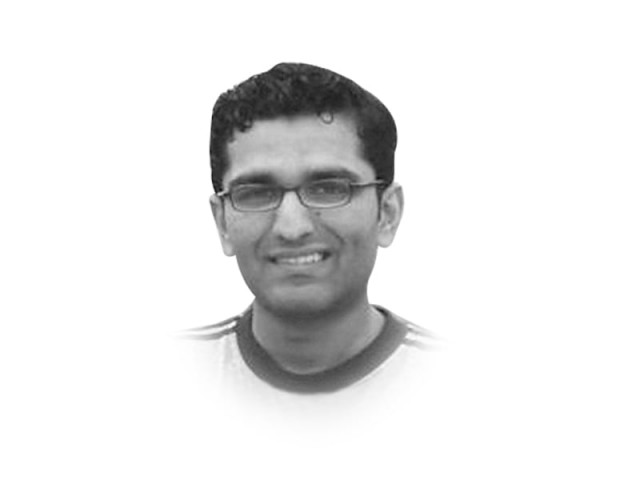The insertion of faith in public discourse
The insertion of religion in every sphere of life in Pakistan has meant the religion has lost its special value.

In this episode, it is significant that the girl was not in an Islamiat class during the alleged incident. According to news reports, she was commenting on a ‘naat’— a poem written in honour of the Holy Prophet Muhammad (pbuh), in an Urdu class.
According to Article 22 of the Constitution of Pakistan, no person can be asked to study another religion, or be forced to take part in any ceremony or event associated with another religion. This article was inserted in the 1973 Constitution to safeguard the minorities and to allay their fears that even after the declaration of Pakistan as an ‘Islamic Republic’ they would not be forced to practically become Muslims. After all, this was exactly the same fear that led the Muslims of South Asia to demand a separate homeland for themselves.
In 1937, when the Congress formed ministries in nine out of eleven provinces of British India, several of their policies irked the Muslims. The singing of the Bande Matram (‘Ode to the Motherland’), which was composed during Hindu resistance to Muslim rule in Bengal in the eighteenth century was considered especially offensive, and thought of as exhibiting the non-acceptance of Muslims and Indian Muslim history, by the Congress. Whatever the truth in this perception, the result of such policies of the Congress ministries was that the Muslims of South Asia (barring some significant sections), were alienated from the Congress and threw in their lot with the Muslim League, thereby reinvigorating an almost dead organisation. Subtle policies like the singing of songs with Hindu overtones and the slighting of Muslim rule were the bedrock of Muslim support for the Muslim League.
Pakistan is an Islamic country and so Islam has a public role. But this does not mean that it has to be inserted in everything. Asking a non-Muslim student to study something which is clearly Islamic is a clear violation of the rights granted to minorities in the Constitution.
The insertion of religion in every sphere of life in Pakistan has meant the religion has lost its special value. Shallow and rash understandings of the religion have become the vogue, and a meaningful study of the religion has been relegated to the domain of the few religious scholars. It would be much better if the aforementioned ‘naat’ were studied by Muslims in an Islamiat class. There they would have been able to not only appreciate the literary qualities of such a composition, but also be able to analyse and understand the theological concepts which underlay the poem.
Putting in religion in every school textbook, not only alienates non-Muslims, it also makes Muslims take the study of faith for granted, and makes the mere appellation of something Islamic enough for the people. It is time that the study of religion is returned to its proper sphere, so that we can develop citizens who have a deep understanding and appreciation of the tenets of Islam. Only grounded Muslims can become good Pakistanis, and this project cannot be achieved through piecemeal learning of Islam through Urdu or other subjects, and can only be achieved through a scholarly approach to the study of Islamiat.
The usage of Hindu symbols alienated the Muslims of South Asia from the Congress and fractured the unity of India which had been the crowning achievement of the British Raj. It gave rise to the religious polarisation which not only led to the creation of Pakistan, but also sowed the seeds of the religious massacres during the partition and riots thereafter. Pakistan is already a fractured country, with little sense of citizenship and a confused notion of nationalism. In this scenario we should not deliberately exclude non-Muslims and make them feel like second-class citizens, especially when they have contributed, and continue to contribute, towards the betterment of Pakistan.
Published in The Express Tribune, October 4th, 2011.















COMMENTS
Comments are moderated and generally will be posted if they are on-topic and not abusive.
For more information, please see our Comments FAQ